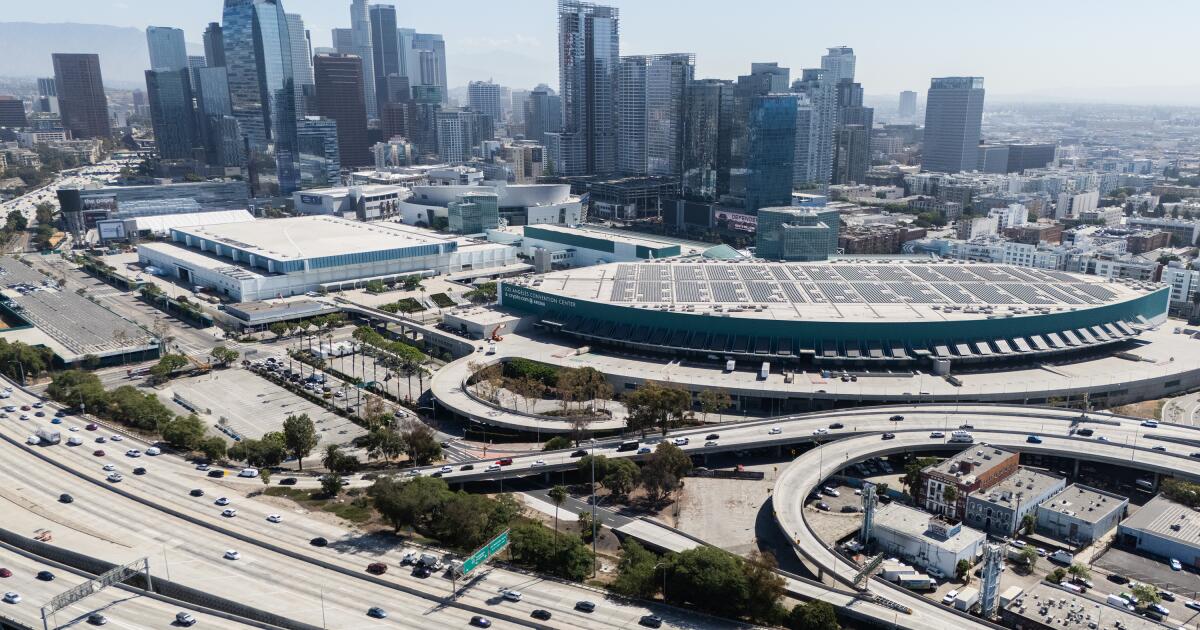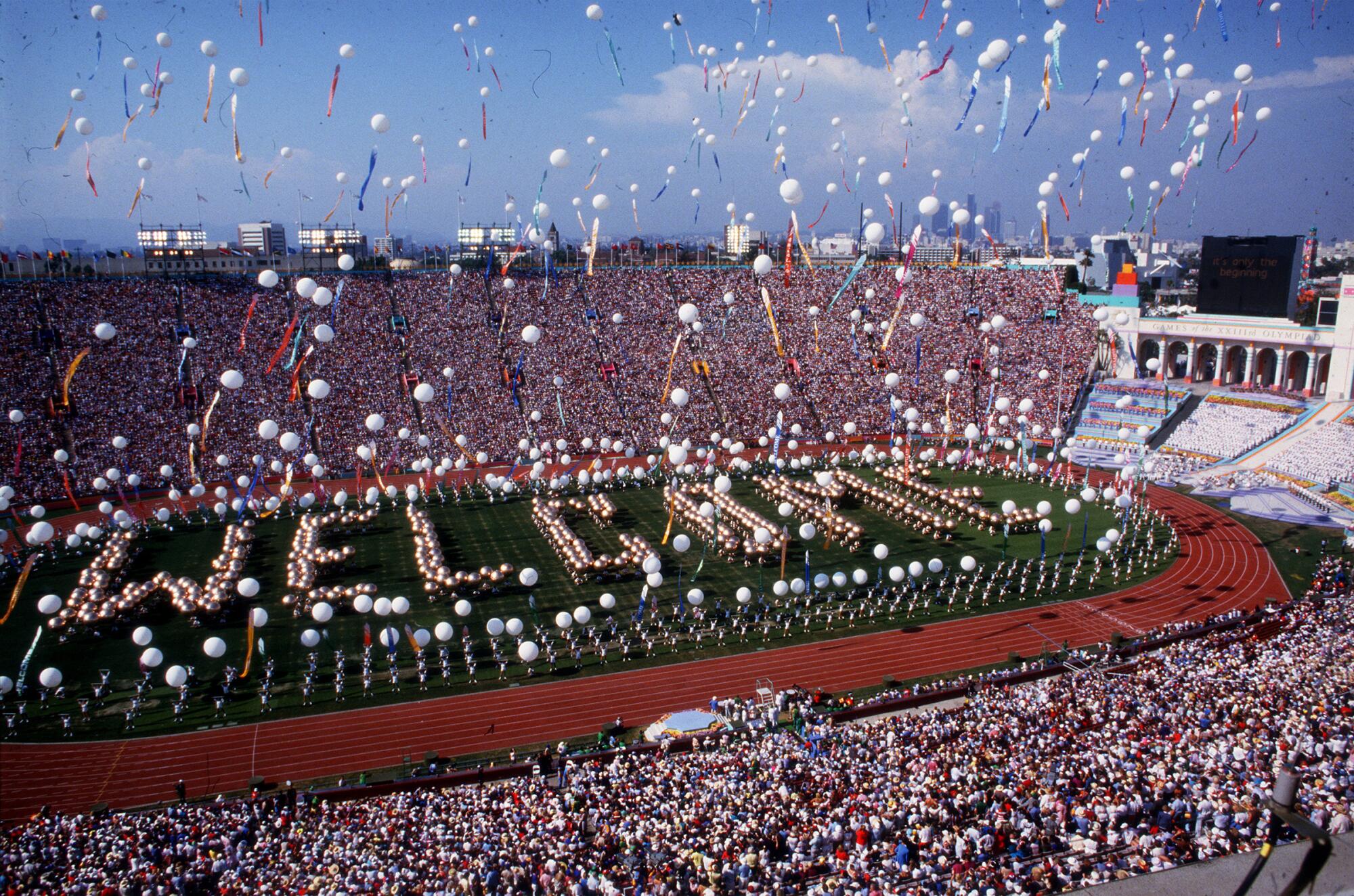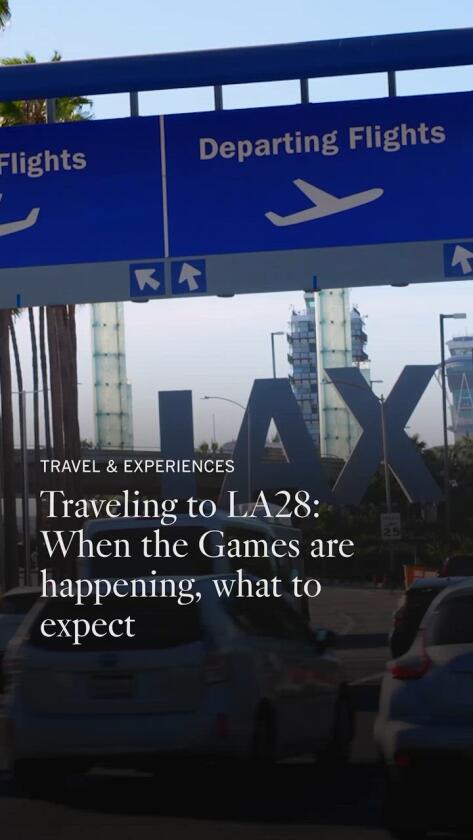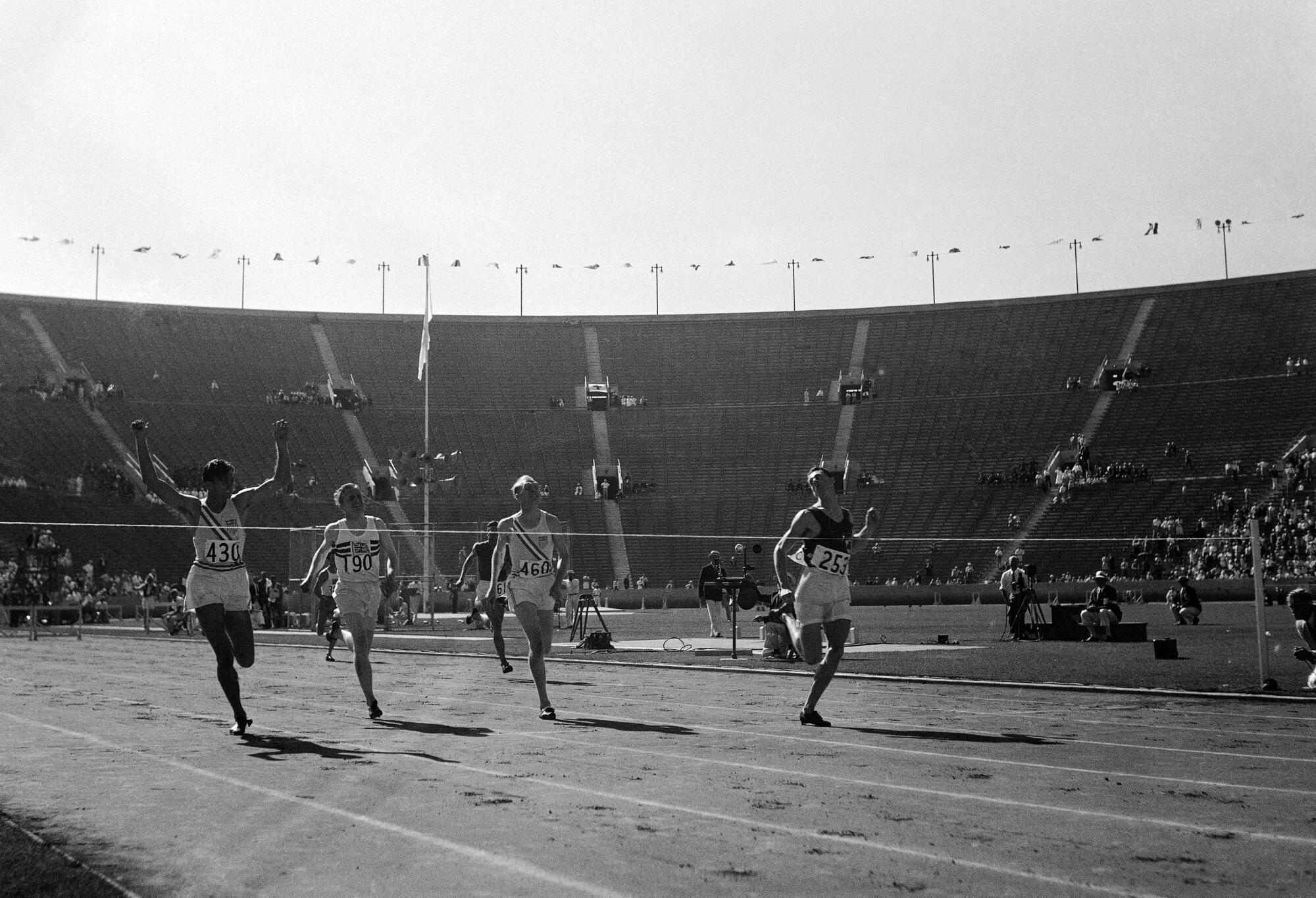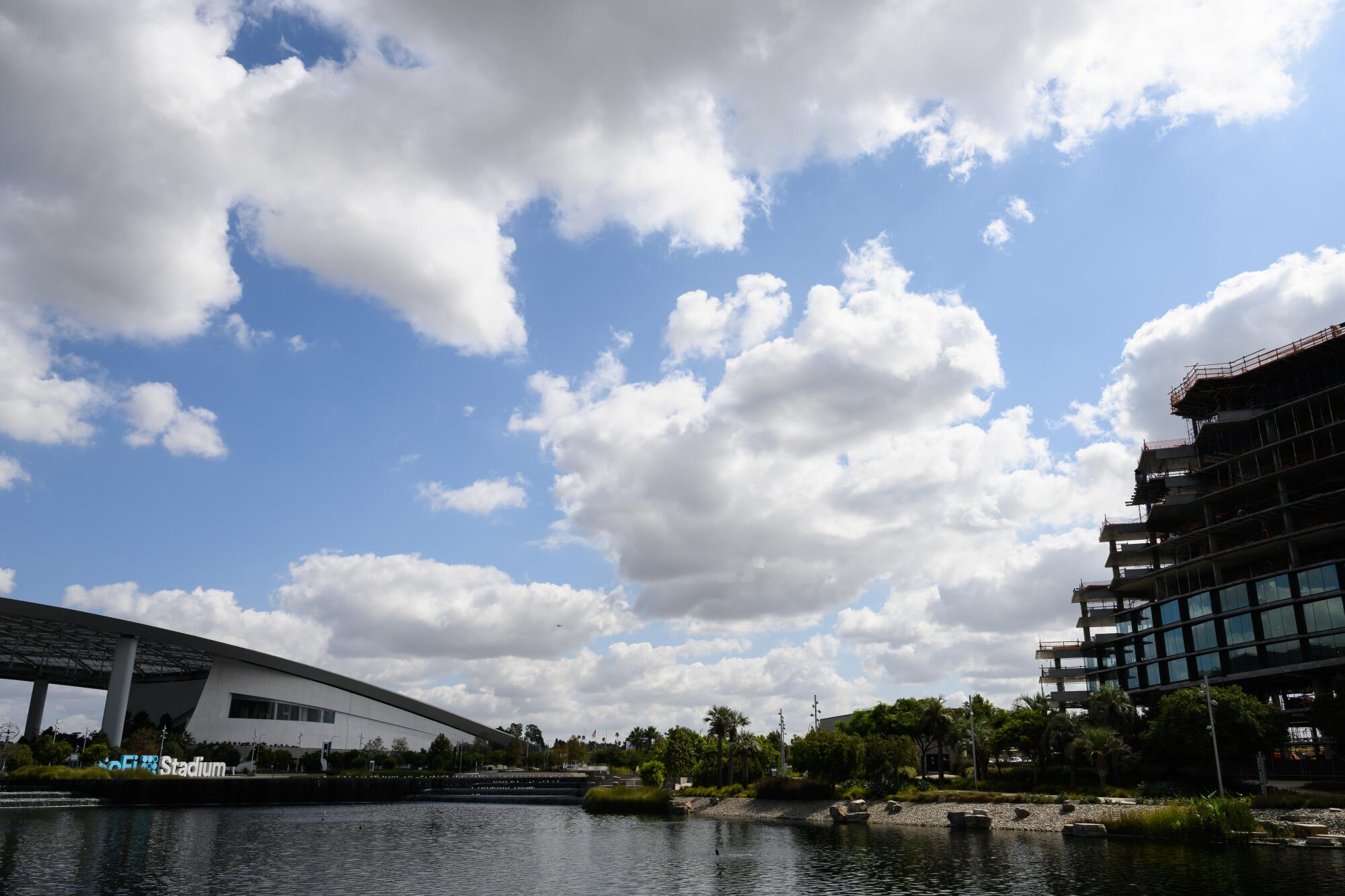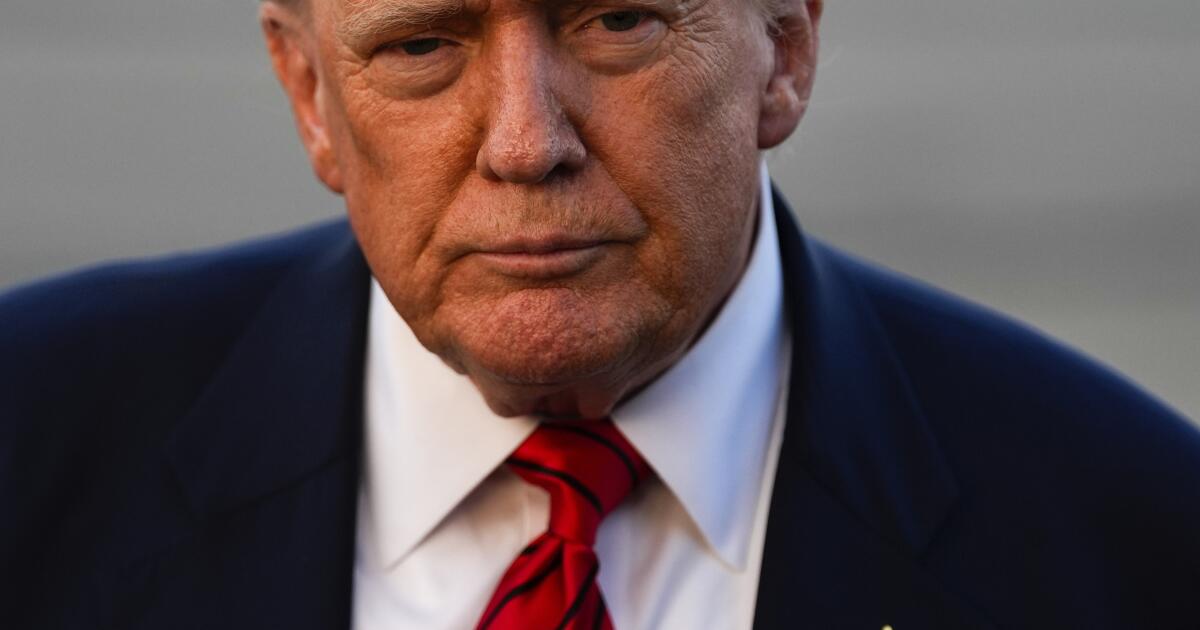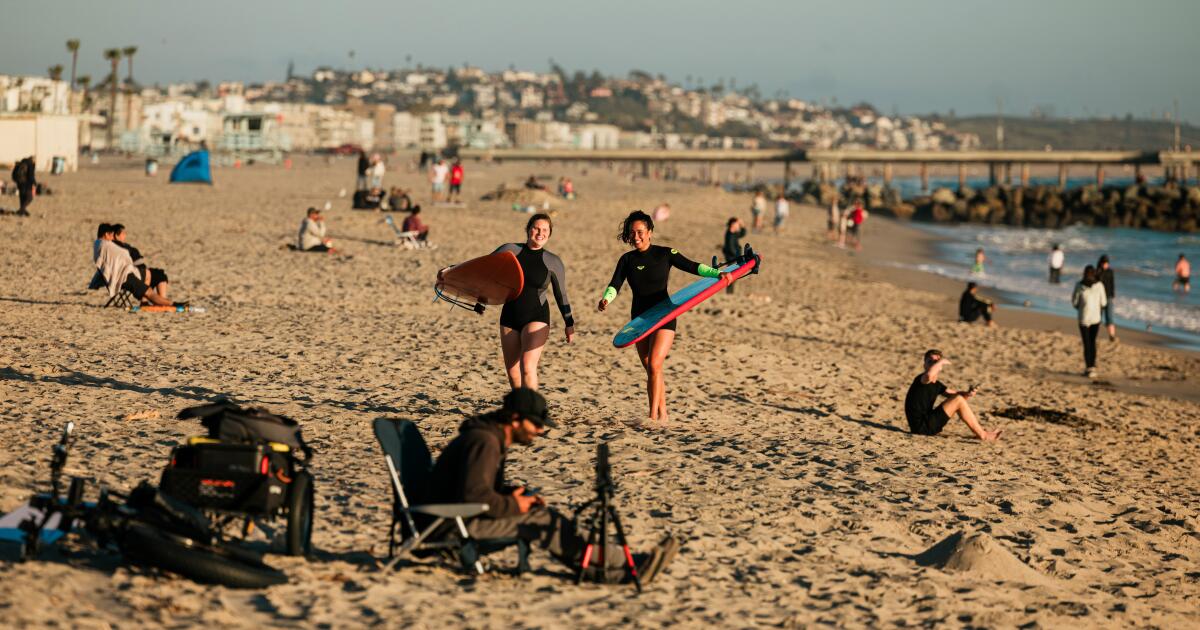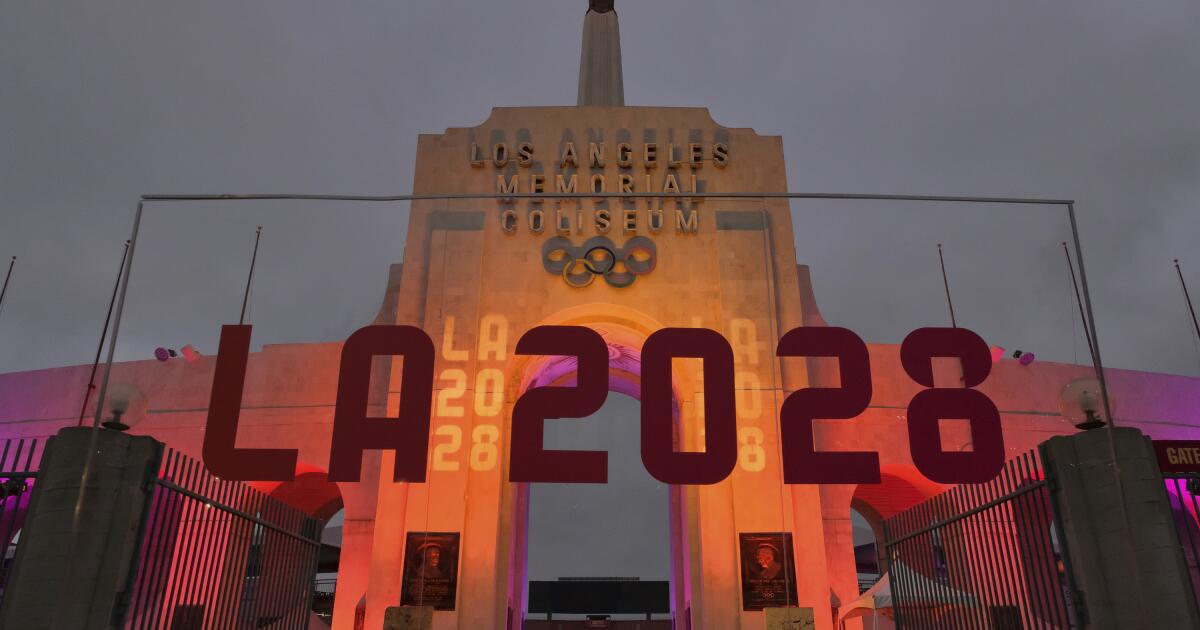L.A. political leaders on Friday took what their own policy experts called a risky bet, agreeing to pour billions of dollars into the city’s aging Convention Center in the hope that it will breathe new life into a struggling downtown and the region’s economy.
In an 11-2 vote, the City Council approved a $2.6-billion expansion of the Los Angeles Convention Center, despite warnings from their own advisors that the project will draw taxpayer funds away from essential city services for decades.
The risks don’t stop there. If the Convention Center expansion experiences major construction delays, the project’s first phase may not be finished in time for the 2028 Olympic and Paralympic Games, when the facility is set to host judo, gymnastics and other competitions.
That, in turn, could leave the city vulnerable to financial penalties from the committee organizing the event, according to the city’s policy analysts.
Those warnings did not discourage Mayor Karen Bass and a majority of the council, who said Friday that the project will create thousands of jobs and boost tourism and business activity, making the city more competitive on the national stage.
“If we’re not here to believe in ourselves, who’s going to believe in us?” said Councilmember Adrin Nazarian, who represents part of the San Fernando Valley. “If we don’t invest in ourselves today, how are we going to be able to go and ask the major investors around the world to come in and invest in us?”
Councilmember Traci Park, who heads the council’s committee on tourism and trade, voiced “very serious concerns” about the city’s economic climate. Nevertheless, she too said the project is needed — in part because of the looming 2028 Games.
“This project will be transformative for downtown, and I truly believe the catalyst for future investment and redevelopment,” she said. “We need to bring our city back to life, and with world events looming, we don’t have time to wait.”
Foes of the project say it is too expensive for a city that, faced with a daunting budget crisis, eliminated 1,600 municipal jobs earlier this year, and has also slowed hiring at the Los Angeles Police Department.
On the eve of Friday’s vote, City Controller Kenneth Mejia came out against the project, saying on Instagram that it won’t generate positive income for the city budget until the late 2050s.
“Due to the city’s consistent budgetary and financial problems with no real solutions for long-term fiscal health … our office cannot recommend going forward with the current plan at this time,” he said.
The price tag for the Convention Center expansion has been a moving target over the last four weeks, increasing dramatically and then moving somewhat downward as the city’s budget analysts sought to assess the financial impact.
On Friday, City Administrative Officer Matt Szabo said the cost had been revised downward by nearly $100 million, which he largely attributed to lower borrowing costs, additional digital billboard revenue and a less expensive construction estimate from the Department of Water and Power.
The project is now expected to cost taxpayers an average of $89 million annually over 30 years, even with the additional parking fees, billboard income and increased tax revenue expected as part of the expansion, he said.
The financial hit will be the largest in the early years. From 2030 to 2046, the project is expected to pull at least $100 million annually away from the city’s general fund, which pays for police officers, firefighters, paramedics and other basic services, according to the newest figures.
Szabo, while addressing the council, called the decision on the expansion “the ultimate judgment call that only you can make.”
“Will it provide substantial economic benefits? Yes. Can we afford it? Yes, but not without future trade-offs,” he said. “We will be committing funds not just in 2030, but for 30 years after that to support this expansion.”
Earlier this week, opponents of the Convention Center expansion attempted to seek a much less expensive alternative focusing, in the short term, on repairs to the facility. The council declined to pursue that option, which was spearheaded by Councilmember Katy Yaroslavsky, the head of the council’s budget committee.
Yaroslavsky called the project unaffordable and unrealistic, saying it would lead to a reduction in city services.
“If you think city services are bad now — and I think all of us would agree that they suck — and you thought maybe one day we would have funding to restore service, I have bad news: It’s going to get worse,” she told her colleagues. “We aren’t going to be able to afford even the level of service we have right now.”
Yaroslavsky and Councilmember Nithya Raman cast the only opposing votes, saying the city is already under huge financial pressure, both at the local and the national levels. L.A. is already at risk of losing state and federal funding that support housing for the city’s neediest, Raman said.
“What I fear is that we’re going to have a beautiful new Convention Center surrounded by far more homelessness than we have today, which will drive away tourists, which will prevent people from coming here and holding their events here,” Raman said.
Friday’s vote was the culmination of a start-and-stop process that has played out at City Hall for more than a decade. Council members have repeatedly looked at upgrading the Convention Center, planning at one point for a new high-rise hotel attached to the facility.
Officials said the expansion project would add an estimated 325,000 square feet to the Convention Center, connecting the facility’s South Hall — whose curving green exterior faces the 10 and 110 Freeway interchange — with the West Hall, which is now an extremely faded blue.
To accomplish that goal, a new wing will be built directly over Pico Boulevard, a task that makes the project “extraordinarily complicated and extraordinarily costly,” Szabo said.
Southern California’s construction trade unions made clear that the Convention Center was their top priority, pressing council members at public meetings and behind the scenes to support it. The project is expected to create about 13,000 construction jobs, plus 2,150 permanent jobs.
Sydney Berrard, a retired member of Sheet Metal Workers’ Local Union No. 105, directed his testimony to Park — who had been undecided on the project for several weeks — telling her she needed to stand with her district’s construction workers.
“The only reason I was able to raise my family, buy a home and retire with security in your district is because of major projects like this,” he said.
Business and local community groups also backed the project, saying it will help a downtown that has struggled to recover since the height of the pandemic. By increasing the amount of contiguous meeting space, L.A. will be able to attract national events, accommodating tens of thousands of visitors at a single convention, they said.
“This is a model that can work,” said Nella McOsker, president and chief executive of the Central City Assn., a downtown-based business group.
Councilmember Bob Blumenfield, who missed Friday’s meeting because of an out-of-state trip planned several months ago, said he remains worried that the project won’t be finished in time for the 2028 Games.
“If that happens, not only is that a shame and embarrassing for the city of L.A. … but the financial risk of that is tremendous,” he said.
Earlier this week, Blumenfield joined Yaroslavsky and Councilmember Eunisses Hernandez in recommending the less expensive alternative plan. On Friday, Hernandez shifted her position to support the expansion.
Hernandez said she too is frustrated with the quality of city services, and will work on finding additional funding to pay for them.
“I know that we will find new money. And it will be OPM — other people’s money,” she said. “Because we can’t keep funding this on the backs of our constituents.”
Because of the tight timeline, construction is expected to begin almost right away, with crews starting demolition work next month.
Ernesto Medrano, executive secretary of the Los Angeles/Orange Counties Building and Construction Trades Council, said the project will be an investment in L.A.’s workers.
“Our members are ready to don their hard hats, their work boots, their tool belts and start moving dirt,” said Medrano, who began his career loading and unloading trucks at the Convention Center.

